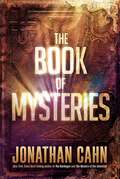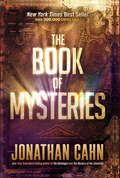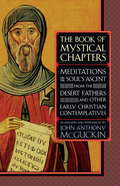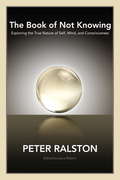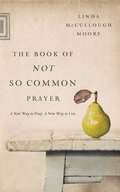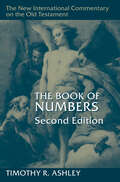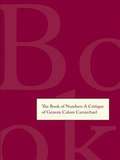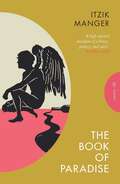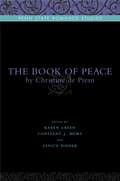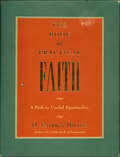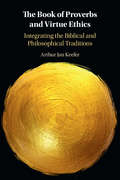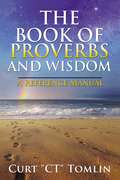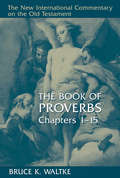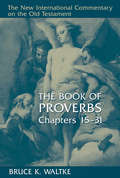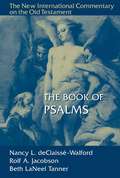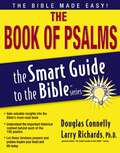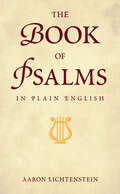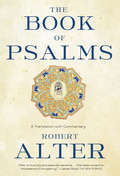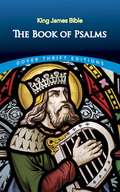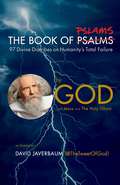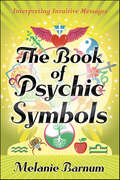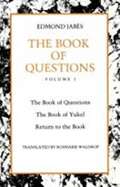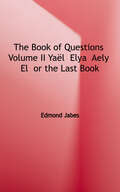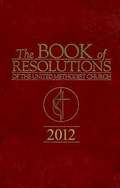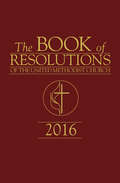- Table View
- List View
The Book of Mysteries
by Jonathan CahnBack Cover: “Enter a lite-changing, journey... to uncover the MYSTERIES OF GOD, the SECRETS OF THE AGES, and the HIDDEN KEYS to open the doors of a life of joy, blessing, and the fulfillment of YOUR DESTINY. “As you open up The Book of Mysteries, you will be transported on a journey through a desert to encounter a man known only as "the teacher," who will take you on an odyssey to mountaintops, caverns, encampments of tent dwellers, and oil-lit chambers of scrolls, ancient books, and mysterious vessels. “Each day a new mystery will be revealed, including: The Mystery of the Eighth Day, The “Maccabean Blueprint, The Chiasma, The Seven Mysteries of the Age, and much more... even the mystery of your life! “Partake in the voyage and unlock the treasure chest to uncover the mysteries of the ages. And with 365 mysteries, one for each day of the journey--and of the year, The Book of Mysteries is also a daily devotional unlike any other--with things never before revealed, the most important keys of spiritual truth, end-time revelation, and the secrets of overcoming... “It can even change your life!”
The Book of Mysteries
by Jonathan CahnNew York Times Best Seller! 1500 5-Star Reviews! From the author that brought you NEW YORK TIMES best selling books The Harbinger, The Mystery of the Shemitah, and The Paradigm with over 3 MILLION copies sold Imagine if you discovered a treasure chest in which were hidden ancient mysteries, revelations from heaven, secrets of the ages, the answers to man&’s most enduring, age-old questions, and the hidden keys that can transform your life to joy, success, and blessing…This is The Book of Mysteries. Jonathan Cahn, who caused a national and international stir with the New York Times best-seller The Harbinger and then The Mystery of the Shemitah, now brings us a treasure chest inside of which are contained some of the greatest mysteries of all time. The reader will discover life-transforming secrets, mind-blowing realities, and heart-changing revelations in such mysteries as the Face in the Waters, the Leper King, the Land of Gezarah, the Secret of the Third Prince, the House of Spirits, the Mystery of the Rains, How to Alter Your Past, the Second Scroll, the Similitude, the Mystery of the Eighth Day, and much more. The Book of Mysteries takes the readers on a journey of divine revelation through ancient Scriptures, the laws of Creation, the deep of God&’s Word, the hidden streams of history, the most important keys of spiritual truth, end-time mysteries, and the secrets of life.The Book of Mysteries opens up with a traveler and his encounter with a man known only as &“the teacher.&” The teacher takes him an on odyssey through desert mountains, valleys, gardens and plains, encounters with nomadic tent dwellers, caverns and ancient ruins, chambers of scrolls and vessels, and more. The reader is taken along to partake in the journey and in all the teachings and revelations. The traveler keeps a journal in which he writes down each of the mysteries given to him by the teacher in his one-year odyssey—365 different mysteries—one for each day of the year. Thus, on top of everything else, The Book of Mysteries is also a daily devotional unlike any other. And each mystery contains a special mission for each day of the year, a mission that takes the revelation and applies it to reality for a life-changing journey.
The Book of Mystical Chapters: Meditations on the Soul's Ascent, from the Desert Fathers and Other Early Christ ian Contemplatives
by John Anthony McguckinThe early Christian monks of Egypt, Syria, and Palestine were the spiritual heroes of their age--fleeing the security of civilization for the desert, where they sought God in lives of prayer, contemplation, and radical simplicity. This book is a portable collection of their teachings, and those of their contemplative contemporaries, ranging from the fourth through the eleventh centuries. It is arranged to the traditional model of three ascending "books": Praktikos (practice), Theoretikos (theory), and Gnosis (knowledge). Each book consists of 100 "sentences"--aphorisms or thoughts. Each sentence is intended to be read and meditated upon for an entire day--just as the monks themselves might have done as they went about their work.
The Book of Not Knowing: Exploring the True Nature of Self, Mind, and Consciousness
by Peter RalstonOver decades of martial arts and meditation practice, Peter Ralston discovered a curious and paradoxical fact: that true awareness arises from a state of not-knowing. Even the most sincere investigation of self and spirit, he says, is often sabotaged by our tendency to grab too quickly for answers and ideas as we retreat to the safety of the known. This "Hitchhiker's Guide to Awareness" provides helpful guideposts along an experiential journey for those Western minds predisposed to wandering off to old habits, cherished presumptions, and a stubbornly solid sense of self. With ease and clarity Ralston teaches readers how to become aware of the background patterns that they are usually too busy, stressed, or distracted to notice. The Book of Not Knowing points out the ways people get stuck in their lives and offers readers a way to make fresh choices about every aspect of their lives, from a place of awareness instead of autopilot.From the Trade Paperback edition.
The Book of Not So Common Prayer: A New Way to Pray, A New Way to Live
by Linda McCullough MoorePractical and spiritual insight provided with a counselor’s genius for offering something actionable—this handbook offers nothing less than a changed life, and a radical call.Linda McCullough Moore builds compelling for a life founded on prayer, delivering a well-supported methodical progression of concrete steps to prayer. Beautifully written, evocative, and intelligent, this primer includes stories of transformation that encourage a new way of praying and of living a vibrant faith. Introducing a "Rule of Life" and bringing spiritual and prayer disciplines to real-time life, the author brings readers to a submergence into a radical prayer life, one small step at a time. Includes a prayer guide, useful tools, and "real" prayers—the kind of prayers we pray in private, not on the stage.
The Book of Numbers (New International Commentary on the Old Testament (NICOT))
by Timothy R. AshleyThe book of Numbers tells a story that has two main characters—God and Israel. The way the story is told sounds odd and often harsh to readers today. In spite of the difficulties imposed by Numbers on today&’s readers, the main point of the book is of immense importance for God&’s people in any age: exact obedience to God is crucial.This comprehensive and erudite commentary presents a thorough explication of this significant Hebrew text. Timothy Ashley&’s introduction discusses such questions as structure, authorship, and theological themes, and it features an extended bibliography of major works on the book of Numbers. Then, dividing the text of Numbers into five major sections, Ashley&’s commentary elucidates the theological themes of obedience and disobedience that run throughout the book. His detailed verse-by-verse comments are intended primarily to explain the Hebrew text of Numbers as we have it rather than to speculate on how the book came to be in its present form. This second edition includes revisions that reflect Ashley&’s decades of experience with the book of Numbers, as well as updates to the footnotes and bibliography that include many important works published in the last thirty years. With these new features, Ashley&’s commentary solidifies its place as the church&’s most faithful and definitive reference on the book of Numbers.
The Book of Numbers: A Critique of Genesis
by Calum CarmichaelIn this work Calum Carmichael--a legal scholar who applies a literary approach to the study of the Bible--shows how each law and each narrative in Numbers, the least researched book in the Pentateuch, responds to problems arising in narrative incidents in Genesis. The book continues Carmichael's process of demonstrating how every law in the Pentateuch is a response to a problem arising in a biblical narrative, not to an inferred societal situation.
The Book of Paradise (Pushkin Press Classics)
by Itzik MangerThe raucously witty Yiddish classic about a Jewish Paradise afflicted by very human temptations and pains—a delightful new translation perfect for fans of Michael ChabonWitty, playful and slyly profound, this story of a young angel expelled from Paradise is the only novel by one of the great Yiddish writers, which was written just before the outbreak of World War II.As a result of a crafty trick, the expelled angel retains the memory of his previous life when he&’s born as a Yiddish-fluent baby mortal on Earth. The humans around him plead for details of that other realm, but the Paradise of his mischievous stories is far from their expectations: a world of drunken angels, lewd patriarchs and the very same divisions and temptations that shape the human world.Published here in a lively new translation by Robert Adler Peckerar, The Book of Paradise is a comic masterpiece from poet-satirist Itzik Manger that irreverently blurs the boundaries between ancient and modern and sacred and profane, where the shtetl is heaven, and heaven is the shtetl.
The Book of Peace: By Christine de Pizan (Penn State Romance Studies #5)
by Karen Green Constant J. Mews Janice PinderChristine de Pizan, one of the earliest known women authors, wrote the Livre de paix (Book of Peace) between 1412 and 1414, a period of severe corruption and civil unrest in her native France. The book offered Pizan a platform from which to expound her views on contemporary politics and to put forth a strict moral code to which she believed all governments should aspire. The text’s intended recipient was the dauphin, Louis of Guyenne; Christine felt that Louis had the political and social influence to fill a void left by years of incompetent leadership. Drawing in equal parts from the Bible and from classical ethical theory, the Livre de paix was revolutionary in its timing, viewpoint, and content. This volume, edited by Karen Green, Constant J. Mews, and Janice Pinder, boasts the first full English translation of Pizan’s work along with the original French text. The editors also place the Livre de paix in historical context, provide a brief biography of Pizan, and offer insight into the translation process.
The Book of Practical Faith: A Path to Useful Spirituality
by D. Patrick MillerMore than ever before, many of us are struggling to cope with the trials and tribulations of modern life. In this concise and eloquent volume, D. Patrick Miller inspires us to meet these challenges with a practical faith, which he describes as "the way out of misery, the way into self-knowledge, and the way toward a more fulfilling and effective life."Miller outlines a path to a "useful spirituality" that can be floowed by anyone with or without traditional religious beliefs. In four lucid steps--Releasing Guilt, Gathering Trust, Practicing Patience, and Learning Transcendence--Miller shows how to develop a practical faith in the midst of everyday life. A journalist by trade who has rediscovered the value of faith after a health and spiritual crisis, he condenses years of personal and professional study into an exceptional synthesis of contemporary wisdom.In today's tumultuous world, The Book of Practical Faith offers all of us an invaluable gift: a sensible path toward an everyday experience of faith that is at once pragmatic and profound.
The Book of Proverbs and Virtue Ethics: Integrating the Biblical and Philosophical Traditions
by Arthur Jan KeeferIn this book, Arthur Keefer offers a new interpretation of the book of Proverbs from the standpoint of virtue ethics. Using an innovative method that bridges philosophy and biblical studies, he argues that much of the instruction within Proverbs meets the criteria for moral and theological virtue as set out in Aristotle's Nicomachean Ethics and the works of St. Thomas Aquinas. Keefer presents the moral thought of Proverbs in its social, historical, and theological contexts. He shows how these contexts shed light on the conceptualization of virtue, the virtues that are promoted and omitted, and the characteristics that make Proverbs a distinctive moral tradition. In giving undivided attention to biblical virtue, this volume opens the way for new avenues of study in biblical ethics, including law, narrative, and other aspects of biblical instruction and wisdom.
The Book of Proverbs and Wisdom: A Reference Manual
by Curt TomlinThe author of The Book of Proverbs and Wisdom, A Reference Manual, Curt &“CT&” Tomlin, was inspired by the Holy Spirit to write &“The Book&” to enhance and illuminate Christian understanding of the Old Testament&’s Book of Proverbs.The author received instructions from the Holy Spirit to write an 'illuminated', The Book of Proverbs and Wisdom, A Reference Manual, whereby every Proverbs verse, would be positioned and contained, in one or more Chapter Theme(s); Accordingly, each Chapter Theme(s), characterizes and reflects, the various Proverbs verses listed and/or contained in the Biblical 'Book of Proverbs'; Thus, every Proverbs verse(s), phrase and/or series of Proverbs verses, has been positioned into one or more of the 70 Chapters contained in &“The Book&”. Additionally, as it is more often the case, that a specific Proverbs verse, might be listed within multiple Chapter Themes! For example, one of my all-time favorite Proverbs verses is Proverbs 1:7, which states--"The fear of the LORD is the beginning of knowledge, But fools despise wisdom and instruction". Accordingly, you will find this Proverbs verse listed in six different Chapter Themes, namely: (a) 'Fear of the LORD'; (b) 'Knowledge'; (c) 'Fools/Foolishness'; (d) 'Hate/Despise'; (e) 'Wisdom'; and (f) 'Instruction', based on the 'key word(s)' listed above. Additionally, I have used, the NKJV version of the Bible, including this version&’s citations; Punctuations; Fonts and Appropriateness for Inclusion, for said Chapter Theme.Within &“The Book&”, each Proverbs verse is included or assigned to a specific Chapter Theme, based on such key word(s), phrase(s) or overall Chapter Theme associated with such Proverbs verse. For example: Where there is a direct, one-on-one tie in to a Chapter Theme from a Proverbs verse, then such key word has been, bolded, underscored, and italicized.Additionally, The Book of Proverbs and Wisdom, A Reference Manual, contains the author's notations to most of the Biblical Proverbs verses, such that the following author's notations are specified: For many Biblical Proverbs verses, the author assigned a: One (*); Two (**); or Three (***) notation for that Proverbs verse, and such a rating, from his perspective, represents how that Proverbs verse, spoke to his heart, i.e. "Good*", "Better**", or "Best***". Uniquely, ALL category Three (***) Proverbs verse notations, have been "Bolded", where such Proverbs verse appears within The Book of Proverbs and Wisdom, A Reference Manual. For example, Proverbs 1:7--"The fear of the LORD is the beginning of knowledge, But fools despise wisdom and instruction", appears in the already mentioned Chapter Themes in a 'bold' fashion.Another unique characteristic of The Book of Proverbs and Wisdom, A Reference Manual, is that, on numerous occasions within a particular Chapter Theme, the author includes surrounding Proverbs verse(s) within such specific Chapter Theme verse notation, such that in his opinion, including such ancillary Proverbs verses, helps to "illuminate" such Proverbs verse(s) for that particular Proverbs Theme. Thus, 'one size' or one Proverb verse, may not fully provide, the spiritual wisdom, knowledge, discernment and/or instructional message that such Proverbs verse might say, on a standalone basis.Finally, one truly unique characteristic, that has been incorporated into the body of The Book of Proverbs and Wisdom, A Reference Manual, is the inclusion of what is being characterized as a "Chapter Narrative", which precedes each Chapter Theme, and represents either, the author's personalized reflection of how the upcoming Chapter Theme(s) impacted the author's Life, or it reflects the author's interpretation of how that Chapter Theme(s), has spoken to the author, for inclusion into The Book of Proverbs and Wisdom, A Reference Manual.Enjoy and may God's Blessings enrich your study, journey and illumi
The Book of Proverbs, Chapters 1-15 (The\new International Commentary On The Old Testament Ser.)
by Bruce K. WaltkeOver twenty-five years in the making, this much-anticipated commentary promises to be the standard study of Proverbs for years to come. Written by eminent Old Testament scholar Bruce Waltke, this two-volume commentary is unquestionably the most comprehensive work on Proverbs available.Grounded in the new literary criticism that has so strengthened biblical interpretation of late, Waltke's commentary on Proverbs demonstrates the profound, ongoing relevance of this Old Testament book for Christian faith and life. A thorough introduction addresses such issues as text and versions, structure, authorship, and theology. The detailed commentary itself explains and elucidates Proverbs as "theological literature." Waltke's highly readable style -- evident even in his original translation of the Hebrew text -- makes his scholarly work accessible to teachers, pastors, Bible students, and general readers alike.
The Book of Proverbs, Chapters 15-31 (New International Commentary On The Old Testament Ser.)
by Bruce K. WaltkeOver twenty-five years in the making, this much-anticipated commentary promises to be the standard study of Proverbs for years to come. Written by eminent Old Testament scholar Bruce Waltke, this two-volume commentary is unquestionably the most comprehensive work on Proverbs available.Grounded in the new literary criticism that has so strengthened biblical interpretation of late, Waltke's commentary on Proverbs demonstrates the profound, ongoing relevance of this Old Testament book for Christian faith and life. A thorough introduction addresses such issues as text and versions, structure, authorship, and theology. The detailed commentary itself explains and elucidates Proverbs as "theological literature." Waltke's highly readable style -- evident even in his original translation of the Hebrew text -- makes his scholarly work accessible to teachers, pastors, Bible students, and general readers alike.
The Book of Psalms (New International Commentary on the Old Testament (NICOT) #Vol. 26)
by Nancy L. deClaisse-Walford Beth LaNeel Tanner Rolf A. JacobsonThis work by Nancy deClaisse-Walford, Rolf Jacobson, and Beth Tanner is the most complete and detailed one-volume commentary available on the Psalms. Significantly, the volume reflects the combined insights of three superior (younger) biblical scholars.DeClaisse-Walford, Jacobson, and Tanner offer a succinct introduction to the Psalter, a new translation of all the psalms that takes special account of the Dead Sea Scrolls, and individual entries on each psalm unit. Throughout the book they draw on state-of-the-art research on the canonical shape and shaping of the Psalter and evidence a nuanced attention to the poetic nature of the psalms.
The Book of Psalms (The Smart Guide to the Bible Series)
by Douglas ConnellyThe Book of Psalms is the most-read and most-quoted book of the Bible! Psalms or "songs" give expression to every human emotion. Even though the musical score does not remain, these timeless words still bring hope and healing. Let your spirit be renewed and your heart uplifted as you read and realize the relevance of these inspirational reminders of God's steadfast presence.Features include:How to be smart about God's purpose, protection, deliverance, and directionThe stories behind the psalms, their meanings, and their impact todayThe power of prayer, praise, trust, and obedience
The Book of Psalms in Plain English: A Contemporary Reading of Tehillim
by Aaron LichtensteinThe ideas and emotions that make the book of Psalms such a powerful text for Judaism and Christianity alike are brilliantly captured in this deft translation by a scholar of Judaism. Aaron Lichtenstein offers the English translation in verse, just as the original Hebrew text is in poetry, in the various poetic modes required by the myriad moods and messages. Readers will be moved by the inspiring words of the Psalms in this essential resource.
The Book of Psalms: A Translation with Commentary
by Robert AlterOne of Newsweek's Best Books of the Year and winner of the Robert Kirsch Award for Lifetime Achievement. A cornerstone of the scriptural canon, the Book of Psalms has been a source of solace and joy for countless readers over millennia. This timeless poetry is beautifully wrought by a scholar whose translation of the Five Books of Moses was hailed as a "godsend" by Seamus Heaney and a "masterpiece" by Robert Fagles. Alter's The Book of Psalms captures the simplicity, the physicality, and the coiled rhythmic power of the Hebrew, restoring the remarkable eloquence of these ancient poems. His learned and insightful commentary illuminates the obscurities of the text.
The Book of Psalms: Large Print Edition (Dover Thrift Editions)
by King James BibleAmong the best known and most quoted books of the Old Testament, the Book of Psalms contains some 150 hymns of praise, prayers of crisis, and songs of faith once attributed solely to the Biblical King David. It is now believed that this collection of poems, originally chanted or sung with instrumental accompaniment, reflects Israel's entire history from the period of the exodus (13th century B.C.) to the postexilic restoration (after 600 B.C.), and we cherish them as the expressions of faith of many generations and many peoples. The Book of Psalms is shared by all sections of Judaism and Christianity, and is fundamental to both Christian and Jewish liturgies. Its English translation in the King James Version of the Bible (1611), from which this edition is reprinted complete and unabridged, is an exceptionally beautiful and stirring one, long regarded as a classic of English literature.
The Book of Pslams: 97 Divine Diatribes on Humanity's Total Failure
by David Javerbaum God Jesus The Holy GhostJust in time for the Apocalypse comes a new Biblical scripture from God and thirteen-time Emmy Award–winning comedy writer David Javerbaum.3,000 years ago, King David wrote The Book of Psalms—hymns in praise of God that became famous worldwide. Now, with humanity on the verge of a self-generated catastrophe, God (with the help of another David) has decided to return, and reverse, the favor. God has collected a cornucopia of insults of the human race in the form of prose, poetry, and parody. From topics as diverse as COVID-19, Trump, racism, abortion, meth, math, and on a lighter note, the platypus, God provides a 21st-century spin on life&’s many problems. And he&’s not alone: his son Jesus Christ has contributed thirty sermons of his own, updating some of his Biblical teachings for the modern audience. Even the Holy Ghost stops by to make sure you don&’t forget him. Anybody who&’s a fan @TheTweetofGod and/or NOT a fan of the human race is sure to love The Book of Pslams.
The Book of Psychic Symbols: Interpreting Intuitive Messages
by Melanie BarnumA strong feeling, a remarkable coincidence, a strange dream . . . What may seem ordinary could actually be an important message from a deceased loved one, spirit guide, or your higher self. Open to a wealth of guidance and opportunities by learning how to recognize and interpret the signs and synchronicities all around us. Expand your awareness of the symbols in your life, strengthen your intuition, overcome challenges, and manifest your desires. This experiential guide includes:A dictionary of more than 500 traditional symbolsPractical exercises to develop your intuitive abilitiesGuidance in defining your own personal symbolsExplanation of how to use chakras and aurasStories and true-life psychic experiencesPraise:"Melanie Barnum offers a vast array of traditional interpretations sprinkled with her own insightful experiences, making The Book of Psychic Symbols an invaluable contribution to every psychic's library."—Elizabeth Harper, author of Wishing: How to Fulfill Your Heart's Desires
The Book of Questions: Book of Yukel, and Return to the Book (The Book of Questions #Vol. 1)
by Rosmarie Waldrop Edmond JabèsA meditative narrative of Jewish Experience and man's relation to the world. <p><p> The Book of Questions, of which volumes IV, V, VI are together published here, is a meditative narrative of Jewish Experience, and, more generally, man's relation to the world. In these volumes the word is personified in the woman Yaël, silence in her still-born child Elya. Even though words imply ambiguity and lies, they are the home of the exile. A book becomes the Book, fragments of the law that are in some way unified, where past and present, the visionary, and the common place, encounter each other. For Jabès every word is a question in the book of being. Man defines himself in the world against all that threatens his existence- death, the infinite, silence, that is, God, his primal opponent. How can one speak what cannot be spoken?
The Book of Questions: Yaël; Elya, Aely, El, or The Last Book
by Edmond JabèsA meditative narrative of Jewish Experience and man's relation to the world. The Book of Questions, of which volumes IV, V, VI are together published here, is a meditative narrative of Jewish Experience, and, more generally, man's relation to the world. <p<p>In these volumes the word is personified in the woman Yaël, silence in her still-born child Elya. Even though words imply ambiguity and lies, they are the home of the exile. A book becomes the Book, fragments of the law that are in some way unified, where past and present, the visionary, and the common place, encounter each other. For Jabès every word is a question in the book of being. Man defines himself in the world against all that threatens his existence- death, the infinite, silence, that is, God, his primal opponent. How can one speak what cannot be spoken?
The Book of Resolutions of The United Methodist Church 2012
by Marvin W. CropseyThe Book of Resolutions provides models for applying an active faith to daily life in ways that can impact the world around us. It contains all current social policies adopted by the General Conference of The United Methodist Church. Find positions on more than 200 subjects, organized into seven sections: The Natural World The Nurturing Community The Social Community The Economic Community The Political Community The World Community Other Resolutions
The Book of Resolutions of The United Methodist Church 2016
by United Methodist ChurchThe Book of Resolutions provides models for applying an active faith to daily life in ways that can impact the world around us. The new Book of Resolutions contains all current social policies adopted by the General Conference of The United Methodist Church. Includes positions on more than 200 subjects, organized into seven sections: The Natural World The Political Community The Nurturing Community The World Community The Social Community The Economic Community Other Resolutions Fully indexed by resolution title, Scripture reference, and topic. Available in English only.
